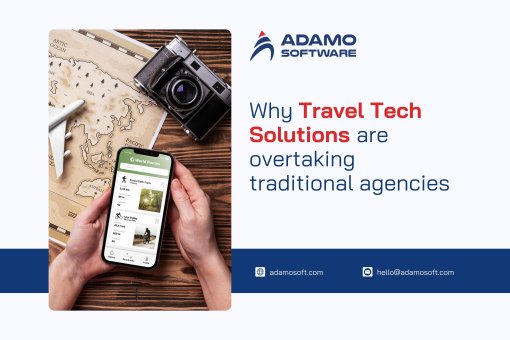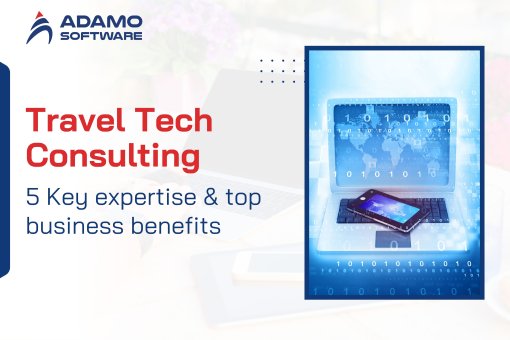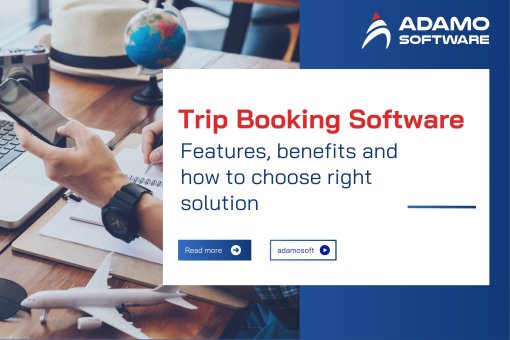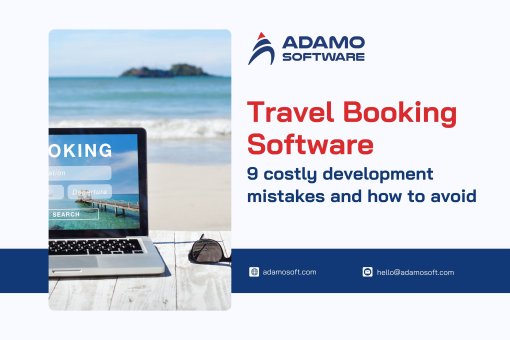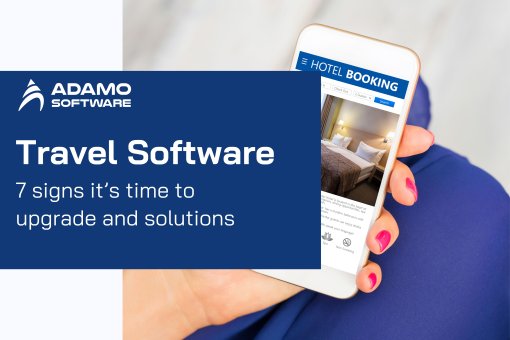What is Travel API? Which Travel API Integration is Suitable for Travel Solutions?
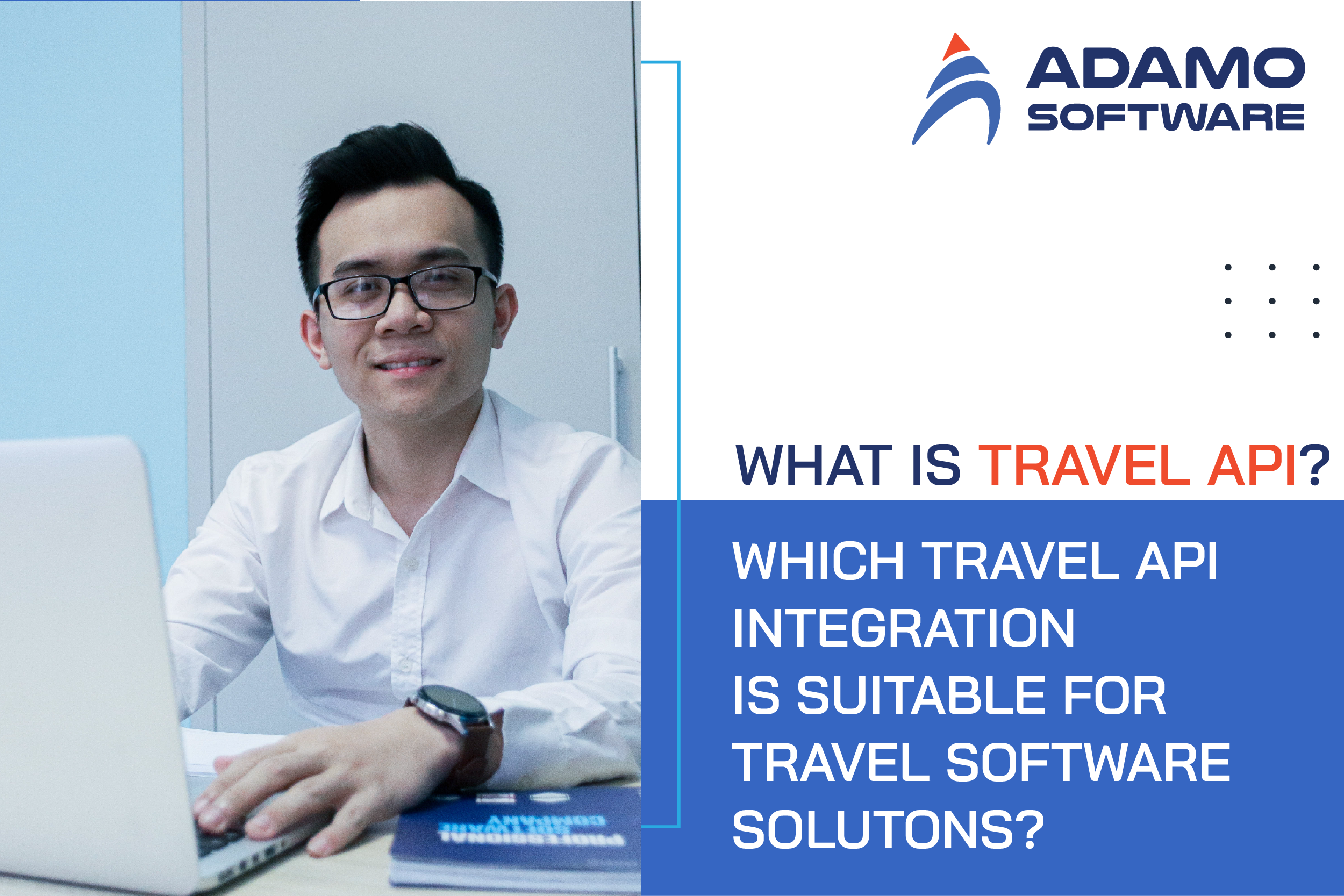
If you are new to travel API, you are in the right place. This article will provide you with thorough and authoritative information regarding travel APIs.
Once upon a time, reserving a trip required visiting a travel agent or the airline or hotel directly to make reservations. This has altered because of the Internet and the creation of application program interfaces (APIs). More people are booking their entire trip online than ever before, with 83% of U.S. travelers booking travel online, nearly 150 million travel bookings made worldwide online each year, and an estimated 700 million people booking hotel accommodations online by 2023.
With this level of demand for online travel booking, travel companies are well aware of the need to integrate into the digital ecosystem that the online travel industry has evolved into. This is an ecosystem in which hotels, airlines, auto rental agencies, and all-in-one booking platforms share information. And to enable this ecosystem, businesses must utilize travel APIs.
I. What is Travel API?
The travel API is a collection of web services that provide access to travel content from various sources, such as GDS, consolidators, wholesalers, and direct connect. Furthermore, the goal is to provide customers with an excellent booking and reservations experience by presenting them with the best travel options.
The APIs of travel aggregators consist of flight reservation APIs, hotel APIs, and vehicle rental APIs, among others. Simply put, travel API is an intermediary that facilitates communication between two distinct software applications. It functions as a digital messenger, transmitting your travel request to the consolidator and returning the response.
II. Why should travel firms use Travel API?
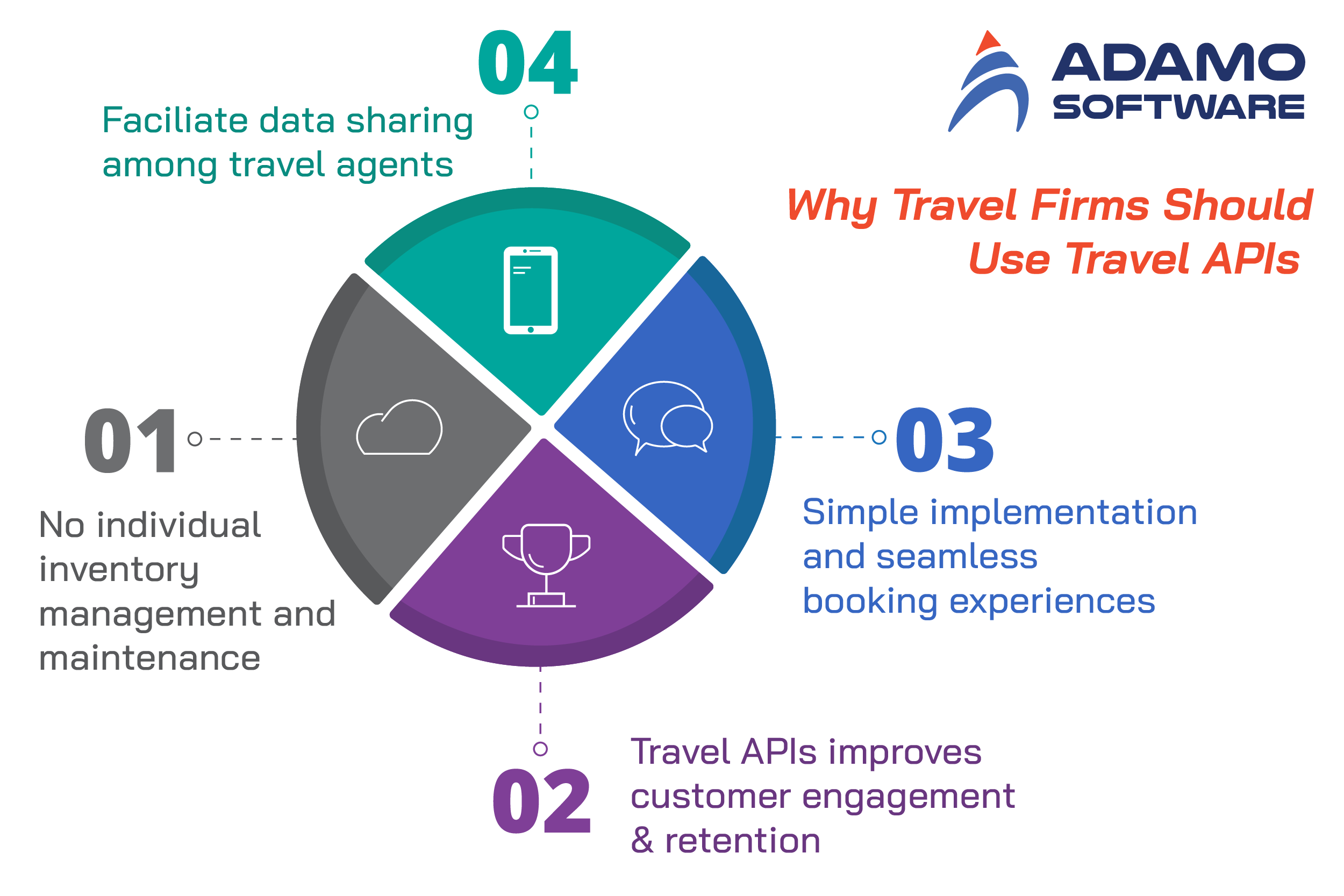
1. Facilitates data sharing among travel agencies
Travel APIs enable travel agencies to access an up-to-date inventory of flights, hotels, vehicle rentals, etc. from various consolidators. It increases traffic to your travel website or app and facilitates the display of the best available flight and hotel options.
2. No individual inventory management & maintenance
Developers can use travel APIs provided by online travel agencies (OTAs) to add flight reservations, hotel accommodations, and other facilities to a website. Besides, this eliminates the need for individual travel agencies to manage and maintain their own travel inventory.
3. Travel APIs improves customer engagement & retention
When a customer searches for a flight or hotel reservation on your travel website, APIs ensure that the customer is not redirected to a competing travel website. Moreover, API integrations guarantee that your travel agent collects all payments through secure payment gateways.
4. Simple implementation and seamless booking experience
Travel APIs function flawlessly with third-party applications and integrate seamlessly with existing travel websites and applications. Besides, it enables travel agencies to integrate flight booking APIs, hotel booking APIs, and other APIs without disrupting functional flow.
III. Explore types of Travel API
– GDS API
– Flight API
– Hotel API
– Car Rental API
– Bus API
– Cruise API
– Transfer API
– Sightseeing API
1. Global Distribution System (GDS) API
1.1. What is the GDS API for travel?
GDS is a global computerized reservation system that travel agents and booking sites use to reserve airline seats, hotels, vehicle rentals, and other travel-related services. Moreover, it includes airfare, vehicle rentals, hotel reservations, and vacation packages. Besides, it enables consumers to purchase airline tickets from multiple sources.
It is a travel data aggregator that provides its services to booking websites and online travel agencies (OTAs). Besides, this API provides the required information and enables the reservation of hotels, airline seats, vehicle rental agencies, rail, cruise lines, and ferries, among other services. It allows resellers of travel services to connect to a singular API as opposed to communicating with each individual service provider.
1.2. Main features of GDS System
– Real-time exposure and access to the worldwide inventory of airlines, hotels, rental vehicles, buses, and other travel-related entities.
– Access to B2B and B2C markets.
– Compatible with Web and Mobile Platforms.
– Direct booking and status verification via API.
Expand your presence among travel agents and agencies.
– Offer real-time online booking to customers.
– Interface with a single window and simple connectivity.
– Effectively targeting all travel agencies and agents with the finest commissions and fares.
– GDS makes information maintenance simple.
– Introducing new distribution channels.
– Travel agents and agencies have 24/7 access to the entire inventory.
1.3. Top GDS API providers in the market: Amadeus, Sabre and Travelport
| GDS API | Offerings |
| Amadeus API | Amadeus APIs are used for airlines, railroads, hotels, car rentals, airport private transports or taxi transfers, cruises, and travel insurance reservations in their two forms (self-service and enterprise). |
| Sabre API | Amadeus and Sabre APIs encompass the same set of functions. You can divide its APIs into eight distinct categories: Hotels, Airlines, Ground transportation utilities (car rentals and trains), Session management, Profiles, Trip management, and Cruises. Consequently, offering administration of traveler profiles and complete trips. |
| Travelport API | Travelport combines data from Apollo, Worldspan, and Galileo, three distinct GDS systems. It offers an Air API, a Rail API, lodging reservations, and a module for fares and extras. Travelport API has the greatest number of listed hotel properties, but manual booking travel agents have fewer cruise options. It excludes insurance and transfers into their APIs as well. |
2. Flight Booking API
2.1. What is the flight booking API?
Implementing flight APIs into your online travel portal enables your B2C clients and travel agents to book flight tickets online with real-time pricing and availability. Because global flight content is accessible through a single interface, flight API integration eliminates the need to access multiple supplier systems in order to find the best pricing for your customers.
2.2. Key features of flight booking API
– Global airfare.
– Seat layout.
– Add on services.
– Real-time PR generation.
– Online check-in.
– Option to hold PNR.
– Online rebooking and cancellation options.
– Multiple options for payment are available.
– Multilingual API.
– Support multi-currency.
2.3. Leading Flight Booking API: Skyscanner & Flightstats
| Flight booking API | Offerings |
| Skyscanner API | This API examines flight pricing for different destinations and time ranges (using cached data) and queries real-time price data for precise flight queries. Pricing is contingent on an affiliate agreement; you must be reviewed and approved to gain API access. |
| Flightstats API | Current and historical flight status, schedules and connections, aircraft details, schedules, delays and standard performance ratings for flights, weather data, and real-time information on flight disruptions. |
3. Hotel room reservation API
3.1. What is the Hotel API?
Hotel API provides connectivity and integration with hotel databases for mobile and online applications. It provides web services that enable online travel agencies to aggregate information from numerous hotel suppliers, including descriptions, galleries, availability, and pricing, and consolidate it into a single engine. Customers can now browse for and reserve hotels worldwide with a single click.
3.2. Key features of hotel room reservation API
– Real-time booking.
– On-the-spot reaction.
– Scalability and flexibility.
– Agent facility.
– Push notification
– Include hotels and rooms
– Cost-effective
– Optimized technically
– Multilingual
3.3. Top IT Partners to Offer Room Reservations: Expedia and Booking.com
| Hotel API | Offerings |
| Expedia | Expedia APIs are designed to streamline property modifications for both hotels and Expedia’s end-users. This API enables hotels to automate booking by instantaneously updating property rates on all Expedia points, modifying availability, and sending notifications whenever a room is reserved via the Expedia network. |
| Booking.com | Booking.com offers two distinct sets of services, one for affiliate partners and the other for channel administrators. It supports content, tariffs and availability, reservations, promotions, and the reporting of problems. |
4. Car Rental API
The car rental API enables you to reserve vehicles using its sophisticated algorithm. Besides, customers can easily reserve vehicles for transportation from a variety of global locations.
5. Bus API
Using a singular interface window, the Bus API enables travelers to make simple reservations while evaluating real-time ticket availability, route scheduling, and information about their pickup and drop-off options.
6. Cruise API
The Cruise API allows cruise providers and online travel agencies to monitor real-time inventory and availability through B2B or B2C sales channels.
7. Transfer API
Transfer API enables agencies and transfer operators to allow B2C, B2B, and corporate clients to book point-to-point transfers online with live availability and immediate acceptance. With the addition of the transfers API integration to the website, clients and customers can search, compare, and reserve their desired transports with ease. They can schedule, terminate, and reschedule their service.
8. Sightseeing API
With sightseeing API integration, travel management companies are able to combine various activities and provide their clients with the most accurate information.
Also read: ChatGPT API Integration: How to Leverage Potential of ChatGPT in Travel
IV. Travel API Integration Process
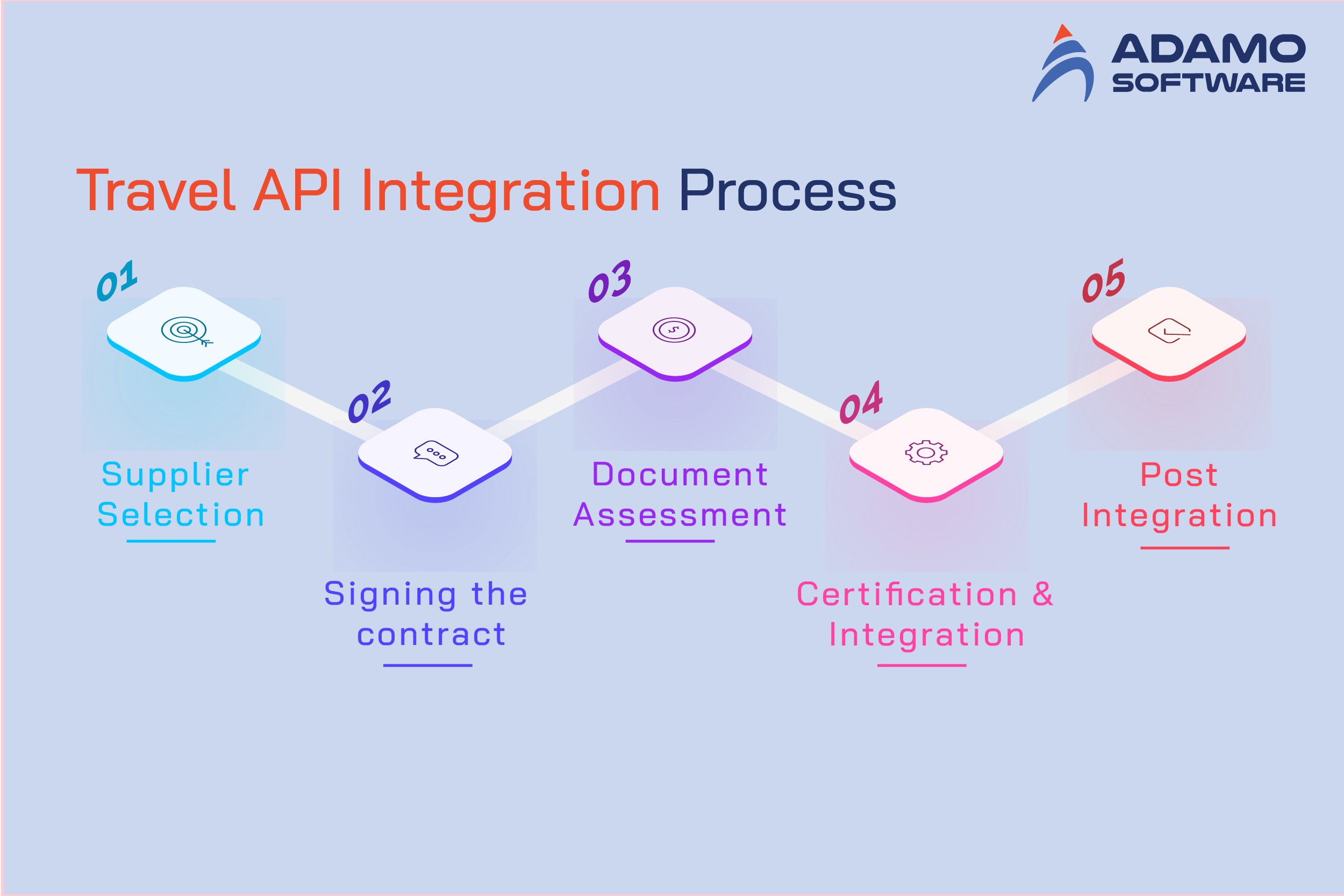
1. Supplier selection
This will be the initial phase. When selecting a supplier, conduct exhaustive research to ensure that you select the best supplier for your travel agency based on availability, your region, your rates, their requirements, etc.
One supplier may have a larger selection of hotels and better rates in your region than another, so it is prudent to verify their rates and availability in advance. Moreover, conduct your investigation, as not all suppliers offer multiple travel API modules (e.g., hotels, air, activities, etc.).
2. Signing the contract & API documentation
Once you’ve decided on a supplier, you must execute a travel API agreement with them. As stated previously, a provider may offer multiple APIs for various modules. Also, you will need a comprehensive contract encompassing all selected modules, with separate APIs as needed.
You may also be required to make a retainer. However, if you have a strong relationship with the supplier and have purchased in large quantities, the travel API fee may be reduced or even waived.
The supplier will send you and your technology provider an API document and test access once the contracting process is complete. Furthermore, the API documentation contains all technical information regarding the API and its components, such as its parameters, regulations, and services. Besides, this is where a dependable and trustworthy technology partner comes into play.
3. API document assessment and development
After the travel API documentation is complete, your technology collaborator will evaluate the API’s technical viability for their booking engine. This allows them to determine if the travel API is ready for deployment, if their XML connector requires modifications, or if they need to construct an entirely new connector.
If you have multiple APIs, your technology partner will need to develop numerous connectors.
4. Certification and integration
Once the documentation and connector are complete, you must have it certified by the supplier. Moreover, existing connections typically require a couple of weeks to complete certification, while new connections require approximately one month.
Once certification is complete, the provider will provide you with credentials to access their live feeds, which can then be used to make reservations. Furthermore, our technology partner will then replace the test feeds with the live feeds and integrate them into the booking engine.
5. Post integration
Once the integration is complete and your site goes live, clients/visitors will begin to see real-time data for the integrated modules. After the integration of travel APIs, the search response time is a common concern for many travel agents.
The search response speed depends on various factors, including the booking engine’s architecture, the server’s location, the number of integrated APIs, and more. However, the most important factor is the supplier’s response time. Some suppliers take longer than others to respond.
The average response time from the supplier is 10-12 seconds. As a result, when selecting a supplier, you must balance speed and cost, as many suppliers with competitive prices offer slow response time and vice versa.
Therefore, it is essential to discuss speed concerns with your technology partner. Besides considering to choose Travel XML APIs, you can explore another travel solutions of progressive web app.
V. Tips to Consider When Choosing The Right Travel API Service Provider
1. Availability, pricing & support
Ensure that the service provider provides complete support for travel API integration with the finest booking options in the region. Besides, check whether their APIs support multiple modules, such as flight booking, hotel booking, and car rental.
2. Contract & API documentation
Ensure that the service provider provides API documentation. If it fails to provide documentation, implementing an API can take several months. Furthermore, you must sign an API contract to begin. Besides, the API documentation includes parameters, constraints, and service descriptions.
3. Post-integration services
Upon completion of the travel API integration, your customers must be able to view the real-time availability of flights and hotels, along with the associated pricing information. Thus, if you encounter any technical issues, your service provider should resolve them as quickly as possible.
VI. Why Choose Adamo as a Premier Travel and hospitality Software Development For Your Travel App?
As a premier software development company in Vietnam in the travel & hospitality industry, Adamo Software always consider the time to launch into the market, offering the cost-effective software solutions for SMEs and corporations and easily allocating the human resources for software development projects.
Besides, understanding the importance of Travel APIs integration in the travel software development project, this article will give you an overview of what is travel API and which travel API integration fits your business solutions. Therefore, if you are planning to build a custom travel portal development for your travel business, you can contact us now.
F.A.Qs for Travel API Integration
1. What is the Travel API?
The Travel API is a collection of web services used to access travel data from various portals. Furthermore, it’s a sort of control panel for linking with software components without having to interact with the code.
2. How does the Travel API work?
Travel APIs work on a simple logic. Besides, it retrieves online travel data (flights, hotel prices, availability, and destinations) from a single portal and gets access to third-party resources.
3. How to integrate Travel API into the existing website?
After mentioning your location, simply contact the supplier’s customer service and request a connection to the technical team to integrate their inventory into your website.
Now, a businessman in your area will contact you, discuss your terms and conditions, and sign the contract.
Once everything is in order with their technical team, they will send you the inventory API documentation, which your technical team can use to integrate with your website.
4. How much does the Travel API cost to build?
The price of travel API depends on the services selected and the provider. Besides, the greater the number of services integrated, the greater the cost.
5. Where can I get the cheapest and the best Travel API integration?
There are several travel portal providers from which you can obtain the travel API integration. Therefore, To obtain a low-cost, technologically advanced travel API integration that is flexible and includes new features. However, you must explore the leading providers with your specific requirements.
6. Why do businesses need Travel API Integration for their Travel Portal Development App?
Travel API integration is now a requirement for travel portals. Because users prefer a location that allows them to customize their travel-related queries and do not want to switch between apps to do so. Here, travel API provides the same convenience and comfort. If a travel portal owner intends to expand their business, API integration is required.
7. What is the third-party API Integration?
If you do not have your API, you can integrate API from third-party providers into your application or website. This is known as third-party API integration.






